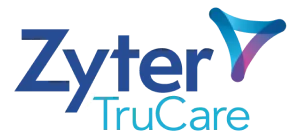- Dr. Yunguo Yu, VP of AI Innovation & Prototyping
Provider-sponsored health plans (PSHPs) hold a distinct and increasingly vital role in healthcare. They are structured to balance high-quality care delivery with financial sustainability, aligning the health of members with the long-term strength of the system. In fact, PSHPs have been shown to deliver higher clinical quality and member experience scores than non-PSHPs.
As artificial intelligence (AI) continues to expand across healthcare, many PSHPs are realizing that technology alone cannot solve their core challenges. Fragmented workflows, delayed interventions, and inconsistent coordination are not problems of data volume, but rather problems of orchestration.
At Zyter|TruCare, we have seen that the real potential of AI is only realized when it is thoughtfully integrated into the human-centered flow of care. The goal is not to deploy more models but to ensure those models drive coordinated, timely action.
From our experience working with leading PSHPs, three principles consistently determine whether AI delivers measurable results: Trust, Timing, and Team-Based Action. When these three elements align, AI becomes a reliable enabler of proactive, collaborative care.
Trust: The Non-Negotiable Foundation
In healthcare, trust is not optional. It is the foundation for adoption and sustained use. Clinicians must understand why an AI system produces a specific recommendation before they will act on it. Care managers need clarity on why a member is flagged as high-risk, and compliance teams must be assured that outputs meet ethical and regulatory standards.
Transparency, explainability, and clinical validation are therefore essential. A model can be statistically sound but still fail if its reasoning is hidden from the people who rely on it.
Zyter SymphonyTM, our agentic AI orchestration platform, is designed around visibility. Every recommendation is traceable to the organization’s own data, clinical guidelines, and workflows. This allows care teams to see how insights are generated, validate them, and make informed decisions with confidence.
Trust in AI does not come from blind acceptance. It comes from understanding the logic that drives each recommendation.
Timing: The Bridge from Insight to Intervention
In healthcare, timing isn’t just important; it’s clinical. A predictive alert that arrives after a hospitalization is like locking the barn door after the horse has bolted.
For PSHPs, the true value of AI lies in its ability to surface the right insight, at the right moment, within the right workflow, before a risk becomes a crisis.
Symphony integrates real-time data from electronic health records (EHRs), claims, social determinants of health, and care management systems. It continuously monitors for early signs of risk, such as subtle changes in medication adherence or vital signs, and delivers insights directly into the care manager’s workflow. This approach enables outreach before a potential issue becomes an emergency.
For PSHPs, the difference between proactive and reactive care often comes down to timing. Every delay represents a missed opportunity to make a difference.
Team-Based Action: AI That Unites, Not Isolates
PSHPs succeed through collaboration. Physicians, nurses, social workers, and care coordinators must operate as a unified team. Yet too many AI tools generate isolated alerts that land in silos, creating noise, not coordination.
Effective AI doesn’t just identify risk; it clarifies who needs to act, when, and why, and ensures the entire care team is aligned.
For example, when a diabetic member’s A1C level begins to rise, Symphony does more than issue a single alert. It automatically initiates coordinated activities: a nurse schedules a medication review, a social worker evaluates food or transportation challenges, and a care coordinator confirms follow-up. Context is shared, duplication is eliminated, and the entire team moves in sync.
The best AI doesn’t replace care teams—it empowers and unites them.
From Insight to Impact: Putting the 3 Ts into Practice
For PSHPs, achieving meaningful outcomes with AI requires disciplined focus on three operational principles:
- Build Trust First
Establish an AI governance structure that includes clinicians, compliance officers, and data stewards. Demand explainability, not just accuracy.
- Design for Timing
Integrate AI insights into active clinical and care management workflows rather than static dashboards or retrospective reports.
- Empower Team-Based Action
Ensure insights automatically generate shared tasks, coordinated outreach, and closed-loop follow-up.
Zyter Symphony platform was purpose-built for this mission. It unites data, people, and processes in a care-first orchestration model, turning predictive signals into proactive, team-driven interventions. It enables payviders to evolve from reactive case management to proactive population health.
The Future Is Alignment
The future of AI in PSHPs will not be determined by technical complexity but by alignment:
- Between data and clinical judgment
- Between prediction and practice
- Between technology and the humans who deliver care
When AI earns trust, delivers insights in time, and enables seamless teamwork, it ceases to be just a tool. It becomes part of the fabric of care itself.
That’s the philosophy behind Zyter|TruCare’s approach: AI that amplifies human expertise, strengthens coordination, and puts care—not code—at the center. For PSHPs, the future isn’t about automation. It’s about alignment. And that alignment rests on a simple, powerful truth:
AI can’t orchestrate care until it understands who needs to act, when, and why.
If you’d like to meet directly with the author of this piece, please contact us and we’ll be in touch to set up a call.








